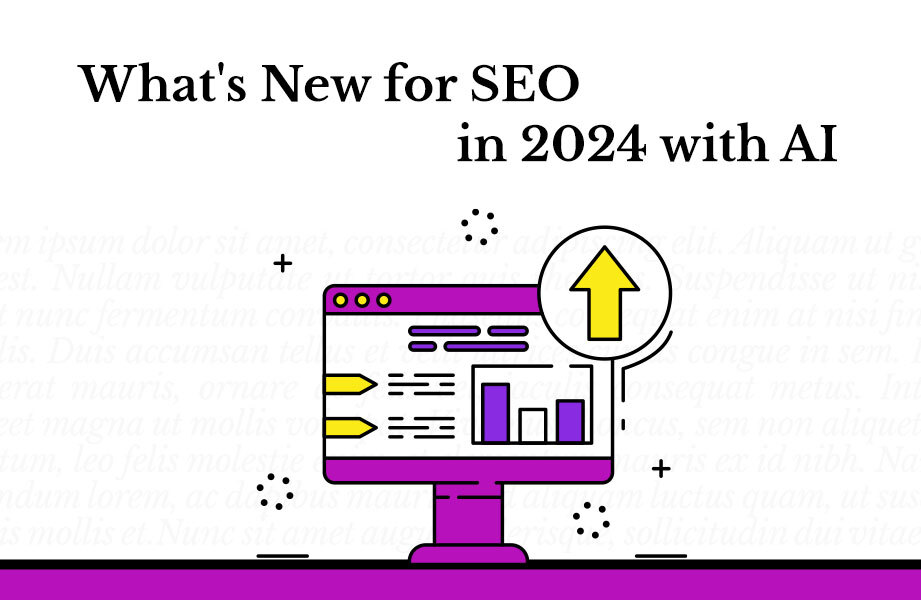The landscape of SEO changes every year. New features in search engines are released, new strategies are discovered, and old ideas stop bearing fruit. Part of being an SEO expert is to always be looking forward and understand what’s coming, and AI has only added to the speed of change. AI has been shaking up every industry from trucking to SEO. Come with us as we explore what’s new for SEO in 2024 with AI.
Quality Over Quantity Will Still Take Precedence
This is going to be the biggest takeaway. As AI finds its place in the digital world, search engines are still adamant that quality is going to be the driving force. As AI makes it easier to pump out endless content, that quantity will hopefully not matter unless it had quality on its side too. We say hopefully, because it’s in all our best interests, not just in the realm of SEO but in the realm of Internet users for search engines to be able to drive quality results and quality information to our phones, computers, and smart devices.
AI content on its own is still in its relative infancy, and we are not expecting to see that change in the immediate future. What can change though, is how we find ways to work with AI to enhance productivity without sacrificing much in terms of quality, but we will talk more on that in a moment.
If you are exploring dumping AI content on your site en masse, we implore you to reconsider. We’ve already seen it firsthand. These dumps in AI content rarely increase traffic. What they do increase is bounce rate, and a site with an overall high bounce rate is likely to tumble down the rankings even for any quality human-written content that they have on their site.
Read More: How Does Content Marketing Keep People On Your Site Longer?

Will Generative AI Make an Impact in Search?
You may have heard that recently Google released a generative AI search feature that essentially creates a summary of your search results with some more in-depth info than what you can just see on the good ol’ search results page.
Currently, this is a beta feature that you have to opt into, it’s only available on personal Google accounts (not in workspaces) and the beta is only set to last until the end of December. Whether or not this feature will go away in 2024 or lose its beta status and just become a part of the search remains to be seen. If it does get rolled out as a part of search like featured snippets or anything else, then it will have a big impact on search in 2024. Big enough, that we recently took a deep dive into generative AI for Google Search and how it works.
In truth, the biggest change that this will likely cause, at least in the short term, is how we track success as we study things like click-through rate and attachment to sources provided by this type of result.
AI as an SEO Bandaid
Properly optimizing a website for search engines can be a difficult task even for new websites. With old websites, you better carve out some time. If you have a large website with hundreds or even thousands of pages and you haven’t been taking care of SEO, then making the hundreds or even thousands of little corrections can be tedious and time consuming.
AI has already been implemented in several areas that can help you quickly address SEO mistakes like missing meta descriptions, missing meta titles, missing image alt text and more all with the click of a button. To be sure, this is not the ideal way to do this as an AI can’t always tell what the purpose of a page is, what descriptions will entice a click, or information about the contents of an image. This is still a process that should be done by hand, but if you have to do it thousands of times, it may be best as a temporary stop-gap to quickly improve your SEO, but for maximum effect, you may want to still go back and make these changes yourself.
We expect the use and usefulness of these tools only to grow in 2024. Additionally, we expect more integration that will make implementing AI content on a website quicker and easier. This could skew large portions of the Internet over to the quantity side rather than quality. In fact, in certain segments, this has always been a reality. This could be a good thing. Not for the overall health of the Internet, but it will help sites that still believe in quality content stand out.

What Will AI-Assisted Content Look Like
One of the fields that we are exploring and offering is called AI-assisted content. AI-assisted content is content that isn’t strictly written by AI nor is it written strictly by a human. Going back to the quality of quantity argument, AI is being used to create the content, but that process is being highly driven by a human with both writing and SEO experience. It’s almost like a master guiding an apprentice to creating a solid finished product. The product will never be as good as the master’s work, but it’s also going to be better than the apprentice’s work alone.
For this type of content, our writers are coming up with the topic, driving the generation of content with multiple prompts, injecting their own writing in when necessary, and doing full proofing and fact-checking along the way.
We believe in this type of content and many others are likely to dip their toes into these waters in the coming year. Though quality remains at the forefront, the basic principle here is that more is better too and this is especially true for websites that are just starting out and trying to gain a foothold in organic search.
Read More: What is AI-Assisted Content?
AI’s Legal Issues Will Continue

Currently, the biggest AI name in the game—ChatGPT—is under fire for potentially breaking copyright laws and using copyrighted works to train its engine. The theory goes that since these works were used, the information in those works is not only available through the AI in a roundabout way and the potential for plagiarism of those works is high.
How this will actually affect ChatGPT is unknown. It’s possible that its entire data set could be ordered to be destroyed. The courts could also issue a $150,000 fine per infringement. We cannot speculate where this will go. It’s possible that the courts will rule in favor of fair use and it’s also possible that all penalties could be enacted thereby destroying ChatGPT.
Regardless, the Pandora’s box of AI has been opened and there is likely no force that can put it all back in the box. If ChatGPT dies, another will rise with a more legally robust system for generating content.
Get Help From Phantom for Your SEO
Are you looking for SEO help – including local SEO? Do you need your site to rank? Whether you are looking for SEO auditing, GBP management, human-written content, or even our AI-assist content, Phantom Copy is here to help. Reach out to us today and hire a Phantom!
